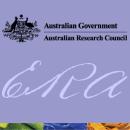 Europe’s first joint call for ageing research ‘ERA-AGE 2’ has been released with a whopping €4.2M available. Research Councils from across Europe have contributed to this fund which aims to increase healthy ageing and increase life expectancy by two years within the European Union by 2020.
Europe’s first joint call for ageing research ‘ERA-AGE 2’ has been released with a whopping €4.2M available. Research Councils from across Europe have contributed to this fund which aims to increase healthy ageing and increase life expectancy by two years within the European Union by 2020.
This call enables researchers from all disciplines to put in applications addressing “Active and healthy ageing across the life course”. The research funded will aim to generate new insights on the factors that enable individuals to live actively and healthily into later life. Applications are invited from multidisciplinary research groups representing three to five funding countries. Stage-one pre-proposals can be submitted until 3 October 2011 under three areas:
1. Generate new knowledge on the biological, clinical, behavioural, social and environmental factors that enable individuals to live actively and healthily into later life.
2. Explore comparatively different models, methods, approaches and good practices in societal responses to increased longevity which emphasise both social inclusion and sustainability.
3. Engage in effective knowledge exchange activities that will assist European and other countries to achieve the goal of increasing healthy life expectancy by two years by 2020.
Tagged / ERA
ERA journal ranking list
 Following on from Anita’s post on Journal Impact Factors and my post on Publications, I thought it would be beneficial to share the Excellence in Research for Australia (ERA) Journal Ranking List which was published by the Australian Research Council (ARC) in 2010.
Following on from Anita’s post on Journal Impact Factors and my post on Publications, I thought it would be beneficial to share the Excellence in Research for Australia (ERA) Journal Ranking List which was published by the Australian Research Council (ARC) in 2010.
It is provided here as a guide to help you make informed decisions about the quality of the journals that you target.
 The list provides probably the most comprehensive, expert opinion based list ever attempted, capturing numerous disciplines (science, social science, business, humanities, etc.) and over 20,000 journals. In this list, and as a broad translation, A and A* ranked outlets are judged to be the best; B is deemed pretty decent, and so on.
The list provides probably the most comprehensive, expert opinion based list ever attempted, capturing numerous disciplines (science, social science, business, humanities, etc.) and over 20,000 journals. In this list, and as a broad translation, A and A* ranked outlets are judged to be the best; B is deemed pretty decent, and so on.
As with all journal ranking lists, this comes with the usual health warning: it’s “expert opinion based”, and thus subjective. As such, it’s an imprecise science, but perhaps a useful guide, especially for those BU disciplines without an equivalent UK quality guide.
You can access the list here – Excellence in Research for Australia (ERA) Journal Ranking List











 REF Code of Practice consultation is open!
REF Code of Practice consultation is open! BU Leads AI-Driven Work Package in EU Horizon SUSHEAS Project
BU Leads AI-Driven Work Package in EU Horizon SUSHEAS Project Evidence Synthesis Centre open at Kathmandu University
Evidence Synthesis Centre open at Kathmandu University Expand Your Impact: Collaboration and Networking Workshops for Researchers
Expand Your Impact: Collaboration and Networking Workshops for Researchers ECR Funding Open Call: Research Culture & Community Grant – Apply now
ECR Funding Open Call: Research Culture & Community Grant – Apply now ECR Funding Open Call: Research Culture & Community Grant – Application Deadline Friday 12 December
ECR Funding Open Call: Research Culture & Community Grant – Application Deadline Friday 12 December MSCA Postdoctoral Fellowships 2025 Call
MSCA Postdoctoral Fellowships 2025 Call ERC Advanced Grant 2025 Webinar
ERC Advanced Grant 2025 Webinar Update on UKRO services
Update on UKRO services European research project exploring use of ‘virtual twins’ to better manage metabolic associated fatty liver disease
European research project exploring use of ‘virtual twins’ to better manage metabolic associated fatty liver disease